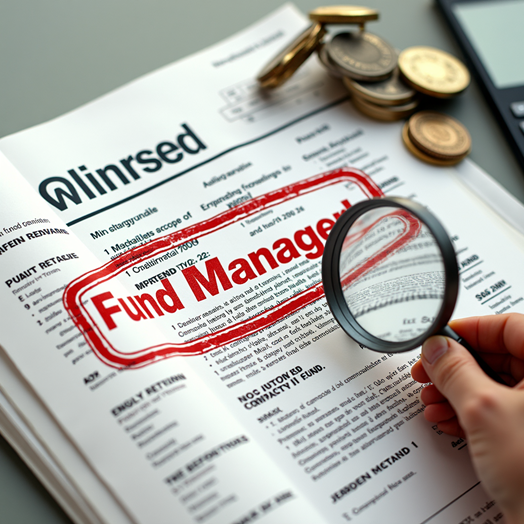There are no items in your cart
Add More
Add More
| Item Details | Price | ||
|---|---|---|---|
Introduction
A mutual fund’s strategy is often shaped by the fund manager’s style. When that manager changes, it’s like switching a chef mid-meal. The ingredients may be the same, but the taste can change.
What should you do when your fund manager changes? Should you exit immediately or wait and watch? In this blog, we break it down — with a real-life story of two investors, Neeraj and Kiran, who faced this exact dilemma.
22/06/2025

Investment Style May Shift: A new manager may favor growth over value, or mid-caps over large-caps.
Portfolio Churn Increases: Incoming managers may overhaul the portfolio to align with their vision.
Performance Could Dip or Spike: Short-term volatility is common as the new strategy takes shape.
But not every manager change leads to disaster. Top AMCs have well-documented processes and research teams that ensure continuity beyond one individual.
Real-Life Example: Neeraj vs Kiran In 2022, both invested ₹5 lakhs in a Multi Cap Fund managed by a veteran with 15+ years of consistent returns.
| Insight | Explanation |
|---|---|
| Don't react immediately | Assess performance over 3-6 months post change |
| Check fund house credibility | Strong AMCs ensure continuity despite manager exits |
| Review new manager's track record | Experience and past fund performance provide helpful insights |
| Look for mandate consistency | If strategy remains the same, long-term damage is unlikely |
Conclusion
A fund manager change is a red flag — but not always a reason to exit. Like changing a cricket captain, it’s the overall team, strategy, and process that ensure long-term performance. Analyse before you act.
Next time your fund manager changes, pause. Study the new lead, observe 1–2 quarters, and assess the fund’s direction. Exiting without research can cost more than staying calm.
Summary Table: Fund Manager Changes
| Reaction to Manager Change | Avg. Return (3-5 Yr CAGR) | Avg. Risk (Volatility) | Avg. Investor Behaviour |
|---|---|---|---|
| Stayed & monitored | 10% - 12% | Medium | Patient, values AMC & strategy |
| Exited immediately | 4% - 6% | High | Panic-driven, short-term view |
| Switched after evaluation | 9% - 11% | Medium-High | Analytical, post-observation switch |

Dr. Satish Vadapalli
Research Analyst